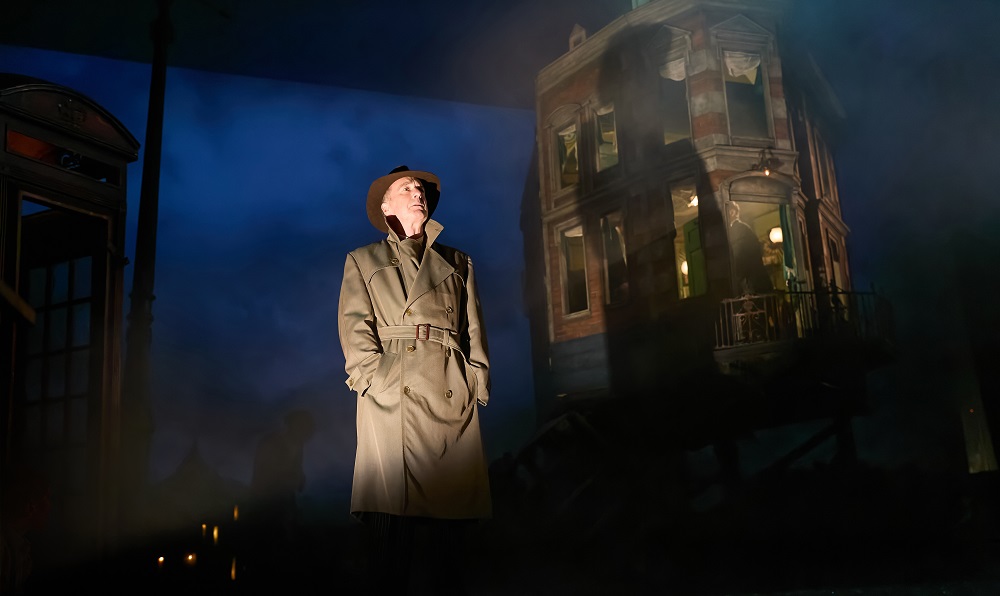
An Inspector Calls review
An Inspector Calls review
Jenny Booth reviews this classic play and finds it has got better with age
We should be grateful to the exam boards for keeping JB Priestley’s An Inspector Calls on the English GCSE syllabus for so many years, because it has brought Stephen Daldry’s magnificent and much-garlanded production back to New Wimbledon Theatre again. The show is improving with age (a rare thing) – it is fierier this time round, and pacier, dripping with outrage and rumbling with threat. If you haven’t seen it yet, I’d recommend you try to get a ticket.
The plot opens as an unusual police inspector calls on the wealthy Birling household where daughter Sheila (sympathetically played with an impressive range of tone by Evlyne Oyedokun) is celebrating her engagement. A young woman who used to work in a factory owned by arrogant and self-important Arthur Birling has killed herself, and Inspector Goole (a relentless Liam Brennan who radiates suppressed rage) wishes to question each member of the family about the dealings they had with the unfortunate girl – ultimately driving her to her death. Simon Cotton’s overwrought outbursts as Sheila’s fiance Gerald and George Rowlands’ flailing hysteria as the wastrel son Eric enjoyably heighten the melodrama, while Christine Kavanagh is commanding as the icy-hearted and self-justifying matriarch.
Superlative staging adds to the power of this moral fable and helps it to feel modern despite its setting before the first world war. The Birling house, elegant but claustrophobically small, is isolated on stilts above what looks like a bombed landscape, where feral children play and silent adults come and go grim-faced as mists swirl and rain falls. Sirens wails and ominous rolls of thunder resemble bombardment, yet the Birlings are too self-absorbed to notice they are on the brink of a war that threatens to wipe away their kind. Cross-examined by their inspector, each passes through self-righteousness and denial to anger and fear of exposure, lapsing into self-pity. While the Birling children appear to feel remorse for the harm they have inflicted, their parents are only concerned for their reputation. As they turn furiously on one another, the Birlings’ world appears to fall apart, literally as well as metaphorically – though the plot contains several twists.
The theatre was packed to the rafters with 15-year-olds from schools for miles around. This is not an easy age group to please but the drama held them attentive for a full 100 minutes without interval, watching in silence apart from the occasional “OO!” or applause at dramatic moments.
New Wimbledon Theatre, until 17 September then touring the UK and Ireland
Image: by Mark Douet







